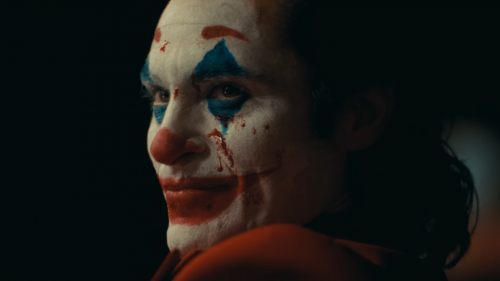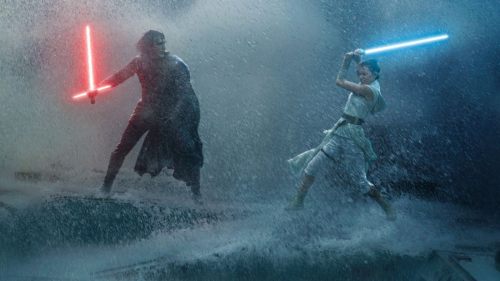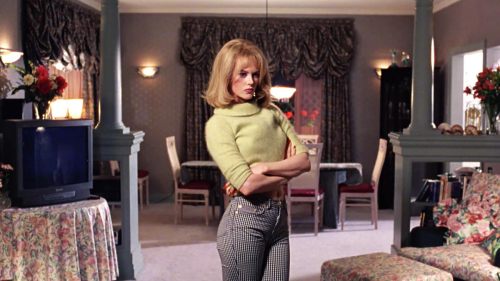JOKER Works If You Sit Back And Let Its Dumb Chaos Reign
Joker works on multiple levels – few as intended. A comic book film attempting to hide itself under the faux silk sheen of a prestige drama, nothing about the hullabaloo leading up to and since Joker 's release has been normal. Claims that the film will cause people to become violent and want to embark on mass shootings; that it’s a beacon of toxic hope for “incels”; that the film is genuinely audacious and shocking and, somehow, very unique. Then there’s director Todd Phillips’ insistence on smearing the film’s name every chance he gets. But, most importantly, this idea that the film is anything more than a hollow comic book installment, attempting to soak up the excess that Christopher Nolan’s Dark Knight Trilogy left behind.
Ultimately, if you watch it at face value, it’s a mostly fine, occasionally entertaining but exceedingly messy movie with nothing very new to say, and its efforts at thoughtful commentary on mental illness and class warfare are muddled underneath its own inane self-seriousness, bizarre script, and the fact that it’s, well, a comic book movie. But from the beginning, Joker had become forever tainted by its own hype – or anti-hype, in some respects, doomed to reap the rewards that its own cursed version of publicity brought it; for better or for worse.
The ludicrousness of the circumstances surrounding this film can’t help but permeate through to its subtext. Visions of editing Joker saying “All I have are negative thoughts” to his social worker into “All I have are horny thoughts” plagued my mind until I actually did it. A trailer dropped over the summer in which an extra can be seen holding up a sign at a rally that says “We are all clowns” and which was promptly repurposed on Twitter, along with the image of Joker looking in a mirror paralleled with one from Black Swan. “Joker’s trick” and “clown prince of crime” are phrases now being tossed around on the internet facetiously, and there was a long-running gag of wanting Joker to say the phrase “We live in a society”. “Why so serious?” Heath Ledger once asked us over a decade ago (ironically, a line also eventually flipped on itself), and now it seems that none of us can be.
The messages the film tries to get across and the analysis being read into it end up canceling each other out when you consider how ridiculous everything about this movie is, and it all ends up adding to the overall enjoyment able to be gleaned from it. The somber, cello-infused score that hums menacingly whenever Joker is once again scorned by Society™ is enough to make you positively writhe in your seat; a scene in which it drones as the camera slow-zooms on Joker’s face while he takes a verbal beating from his boss at the Clown Shop is somehow actually a real scene! Lines are kept in the movie like “Is it just me, or is it getting crazier out there?” and “I used to think my life was a tragedy, but now I realize it’s a fucking comedy.”
And then there is Joker’s relentless urge to dance. There’s an extended sequence in which Joker dances to “Rock and Roll” by Gary Glitter. The scene and song choice are both so far removed from anything else in the movie, its own absurdity is enough to entertain in a masochistic sort of way. So many of the genuinely good things in Joker hinge on the extended ridiculousness of their own context, and the inability to remove the film from its own illogical discourse that has made this past year feel like ten.
Joker does find itself settling into a groove for the last twenty to thirty minutes of the film. As Joaquin Phoenix fully leans into what could be considered a more closely-observed performance of the Joker character, the movie becomes good in the most genuine sense of the word. His little suit, his dancing, his makeup and trademark green hair, and the way he toes the line between insanity and camp is so glorious that this part of the film starts to feel like an entirely different movie. Some will view this shift in quality as a gloomy reminder of what the film could have been, but I believe it only adds to the film’s exceptional silliness.
The film opens with Joker applying clown makeup to his face, while a voice over the radio laments about society, questioning “What is this world coming to?” as Joker prepares for another day of woe and torment being a rent-a-clown. The title card drops about ten minutes later, after Joker has been attacked by a group of young hooligans, and the same dull, imposing cello music murmurs over his collapsed body. Suddenly, the word “JOKER” covers the screen in gigantic, all-capitalized letters, and it is impossible not to laugh. For whatever it’s worth, amidst discourse after mind-numbing discourse, there is enjoyment to Joker.



